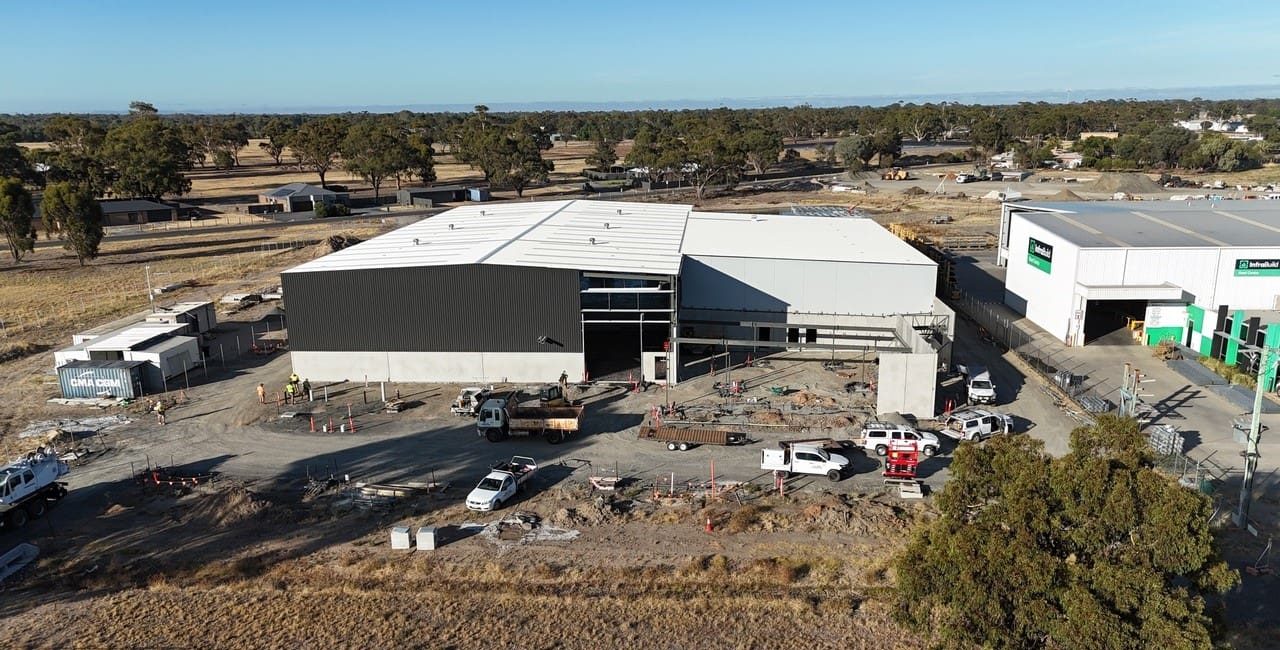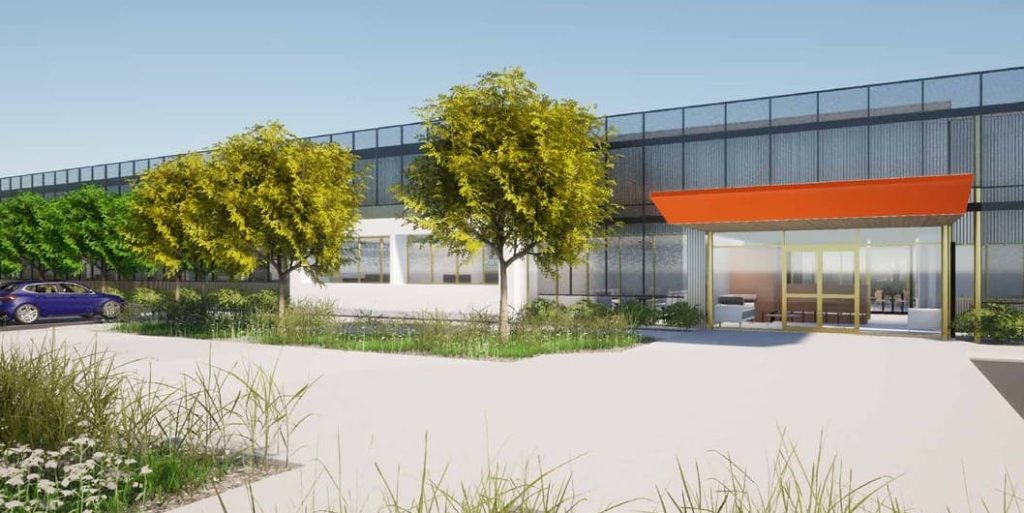
Construction is underway at InterGrain’s new Horsham facility. Image taken in February. Photo: InterGrain
AUSTRALIAN crop breeder InterGrain is progressing two major capital works projects, aimed at boosting capacity and expanding the range of crops in its portfolio.
The company currently operates breeding facilities at Bibra Lakes in Western Australia and Horsham in Victoria as well as having an operation co-located with the New South Wales Department of Primary Industries and Regional Development at Narrabri.
A new plant breeding facility in Horsham is on track for completion by 30 June, with construction on a second site at Perth due to begin the following day.
The new facility in Victoria will bring together InterGrain’s Horsham operations, currently split across two sites, into a single modern hub, aiming to deliver a better working environment for staff.
The most significant of InterGrain’s investments will be its new Perth site, to be located at the Forrestdale Business Park, approximately 20km south-east of the city CBD.
The new facility, reportedly costing $38 million, will replace InterGrain’s long-standing base at Bibra Lake, which it has leased for more than a decade.
InterGrain chief executive Tress Walmsley told Grain Central the Forrestdale project marks the first time the company has undertaken a facility build from the ground up.
“We’ve purchased 3.5 hectares, and it will be a significant build for us,” Ms Walmsley said.
“The great thing about our new build is that it will be custom for what we do.”
She said the site will allow the company to expand on its early-generation work and advance its “speed breeding” capability.
This will feature what InterGrain describes as a “fast factory” in a similar style to a “vertical garden” designed to accelerate the early stages of the plant breeding process.
“Essentially, we’re going to have a big warehouse and we’ll be pushing through generations really quickly.
“So that really allows us just to do a bigger number of crosses and larger populations and then get to the field much faster.”
Other features of the new Perth site include a large cool room facility and an in-house quality lab as well as other offices and warehouses.
The project is expected to be completed by December 2026.

An artist’s impression of the entrance to the proposed new Forrestlake facility. Photo: InterGrain
Expanded crop offerings
Ms Walmsley said these projects were designed to increase InterGrain’s capacity to enable the company to push into new territory and crops.
InterGrain’s breeding program focuses on wheat, barley and oats, with faba beans added to its portfolio in 2023.
“These new facilities will enable us to diversify into some other crops.
“We’re having a pretty good look at faba beans and other pulses as well.”
She said InterGrain, in partnership with US-based Inari, is developing gene-edited wheat varieties aimed at boosting yields and increasing drought tolerance.
“We’ll be doing our first year of broadscale field evaluation this year, which is quite exciting.”
Ms Walmsley said the scale of the field trials would be “a world first” for a gene-edited wheat crop, with previous evaluations limited to glasshouse or pot trials.
The company are also looking at options to increase its presence in the northern growing region.
It currently leases some facilities at the NSW DPIRD Australian Cotton Research Institute at Narrabri.
Ms Walmsley said that once the Perth and Horsham projects are completed, InterGrain would look at opportunities to expand into the northern region, covering northern NSW and southern Queensland.
“In the future, once we have bedded down the southern and western projects, I think we’d be looking to push in an expansion of a northern node and having some better infrastructure up there.”
Grower-funded projects
Formed in 2007 following the privatisation of WA’s state-run wheat breeding program, InterGrain is jointly owned by the WA Government and the Grains Research and Development Corporation.
Ms Walmsley said the projects were entirely funded through proceeds from the End Point Royalties scheme – a grower-paid fee collected on each tonne of grain produced from a specific variety.
“These investments are actually funded by growers End Point Royalties.
“This is what the End Point Royalties are contributing to is, the future capacity building of InterGrain.”

HAVE YOUR SAY